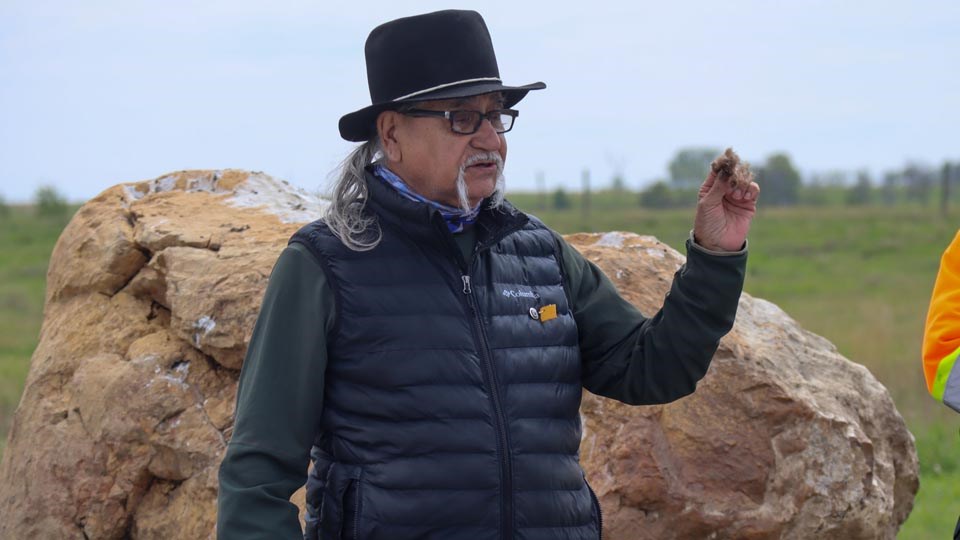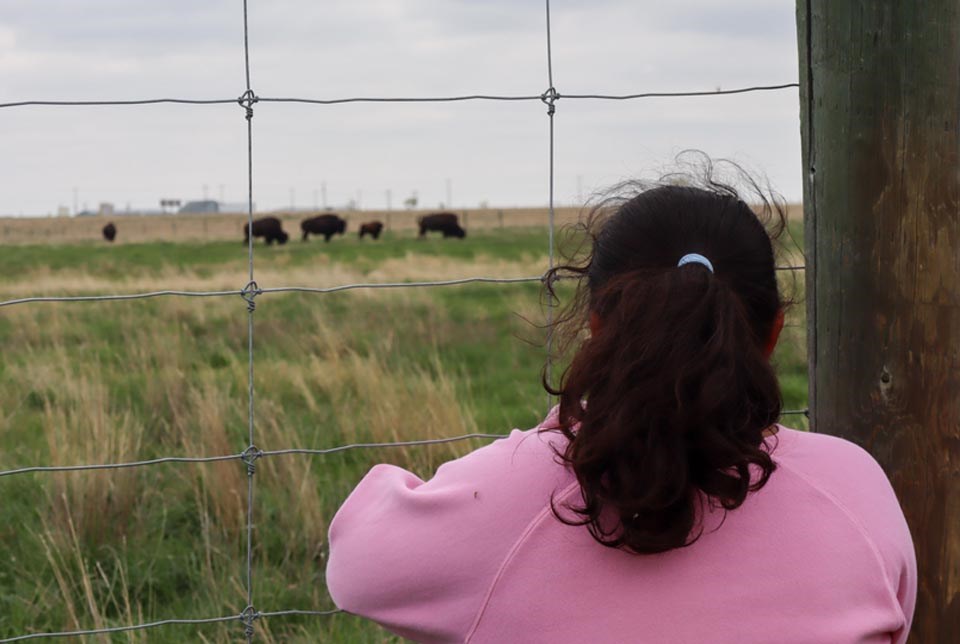SASKATOON — The University of Saskatchewan’s (USask) Indian Teacher Education Program (ITEP) is partnering with local school divisions to deliver four culturally affirming land-based learning sessions for elementary, middle years and high school students.
These sessions focused on bison teachings, honour sacrifice, kindness, respect and using education for the collective good of others.
The first session was hosted by ITEP at the College of Education in October for Grade 3 students from both school divisions. Greater Saskatoon Catholic Schools (GSCS) hosted the second session of land-based art and cultural events in January for middle years students at the Ed and May Scissons Environmental Education Centre at Eagle Creek. Saskatoon Public Schools (SPS) hosted the third land-based learning day for high school students in February at the Brightwater Science, Environmental and Indigenous Learning Centre.
The teachings concluded in May at the USask Livestock and Forage Centre of Excellence (LFCE), where Grade 3 students had the opportunity to meet the bison and learn about the Hug-a-Tree program offered through Saskatchewan Search and Rescue.
ITEP Director Yvette Arcand highlighted the importance of 蝉墨迟辞蝉办腻迟辞飞颈苍 – the tying of the USask, GSCS and SPS educational partnership, similar to the bindings at the top of a teepee.
“The students from St. Frances Cree Bilingual School and wâhkôhtowin School get to interact with one another – there is no separation, they’re just looked at as students,” said Arcand. “It also gives the opportunity for our teacher candidates to be able to teach students that they may already have relationships with because of their field placements at St. Frances School and w膩hk艒htowin School.”
The sessions were initiated through 蝉墨迟辞蝉办腻迟辞飞颈苍 as part of USask’s Social Sciences and Humanities Research Council Insight Grant.
“The research focuses on how decolonizing teacher education benefits both Indigenous and non-Indigenous learners, teacher candidates and educational partners through an understanding of w膩hk艒htowin – a Cree educational way of thinking that emphasizes relationship and kinship through Indigenous worldviews,” said Dr. Dawn Wallin (PhD), USask associate vice-president research (engagement).

"If you learn to energize and connect with your spirit and soul, you really don’t need anything else." - Elder Roland Duquette. | Photo by Connor Jay
Elder Roland Duquette began the session at LFCE with an opening prayer and wisdom through bison teachings on maintaining and sustaining Indigenous cultures and traditional ways of living. Saskatchewan Search and Rescue Hug-a-Tree Program presenters Hank and Jen Korchalo taught the students how to survive if they are lost in nature, after which they presented the students with colouring books written in five Indigenous languages.
Following a bison bannock burger lunch, LFCE director Dr. Scott Wright (PhD) talked about the LFCE’s relationship with the bison herd and how the university is working to bridge Western science and Indigenous knowledge in relation to bison. ITEP alum Shirley Cardinal offered Cree lessons related to the day’s events before Duquette closed off the day.
“The kids on the land are the highlight,” said Duquette. “You feel the energy with them on the land more than on the playground. There’s a total difference. This is our playground. This is where we learn our teachings, our stories – how grounded you are in your life when you come to the land.”
“We started our sessions by bringing Grade 3 students together to learn bison teachings through culture, land-based learning and Cree language,” said Wallin. “At this final session, we’re closing the circle with the little ones again. There is something very special about having the young children meet the baby bison as a representation of our hope for the future.”
Some students may have seen bison before, but never in herds of over 50 roaming in their surroundings. The newborn and adult bison were also curious about the additional audience members. They wandered back and forth between the students and their spaces as the day progressed. Wright said he loved seeing students connect with the bison and the land.
“It has been absolutely amazing getting the opportunity for the kids to connect with the bison, to connect with the land and to hear the Elders,” said Wright. “They had their hands in the dirt and embraced the outdoors. These are the things I think that they will remember and carry forward.”
Wright’s efforts include working for researchers in studying bison genetics and behaviours to help strengthen the Plains and Wood Bison species that roamed the land prior to colonization.
“Over the last 400 years, bison numbers have shrunk so small that we've lost some of that genetic potential. So the science, being led by [Professor Emeritus, Department of Veterinary Biomedical Sciences] Dr. Gregg Adams and Parks Canada, in addition to understanding our relationship to bison from Indigenous ways of knowing, helps to set a brighter future for the bison,” he said. "The chance for the kids to begin to see that and think a little bit about those animals – that’s a huge opportunity.”
The final session celebrated the partnership and progress in research, bringing together students, teachers, teacher candidates, staff and researchers. Collaboration and community is a key step in decolonizing the education system.
“That’s what the creation is all about,” said Duquette. "It’s about you being that human being to ground yourself with the land, Mother Earth, and everything else. If you learn to energize and connect with your spirit and soul, you really don’t need anything else.”
— Submitted by USask Media Relations




